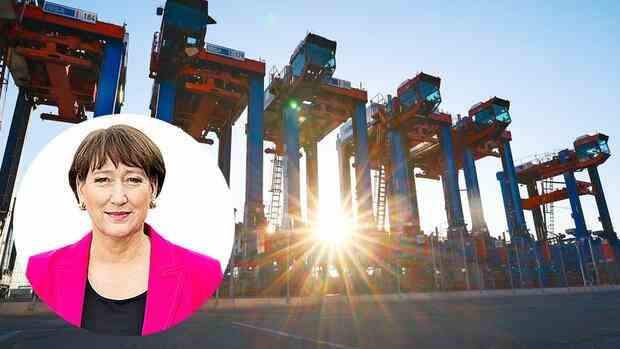Hildegard Müller is President of the Association of the Automotive Industry.
(Photo: dpa)
2022 was not an easy year – war, crises and conflicts have affected us and left us worried. Peace, freedom and prosperity face new challenges.
Consumers and small and medium-sized businesses have often reached the limits of their resilience. In the midst of the transformation to climate neutrality, the industry is groaning under the increasing burdens and regulations.
The geopolitical developments have shown us impressively that our previous economic model is no longer an automatic guarantee of prosperity. And: The weaknesses of Europe as a business location – honestly known for a long time – were relentlessly exposed.
While an international, tough location competition has begun, Germany is now – in addition to ongoing crisis management – confronted with the fact that economic and geopolitics must from now on be even more strategically thought out and developed.
Top jobs of the day
Find the best jobs now and
be notified by email.
The high proportion of industry in Germany is a great opportunity
This new reality is not yet sufficiently reflected in the strategic decisions made in Berlin. For the constantly emphasized claim of wanting to shape more and take responsibility globally, there is (still) a necessary insight missing: If Germany wants to take on more responsibility and anchor values and convictions in terms of climate protection internationally in the long term, then this will only work as an important, worldwide leading economy.
In other words: Only if we remain internationally relevant will we continue to have global political weight in the future – and can thus be a role model for climate protection and values. Crucial here: This relevance must be made possible and promoted: A policy is needed that promotes the strengths of our industrial nation, opens up new markets, relies on innovations – and thus secures prosperity and growth.
An energy policy that is not free of ideology is unworldly and, as a result, increasingly burdensome for people and industry.
Where and why do we need Germany in the future in the world? Germany is a strong industrial country. Thanks to our unique medium-sized and innovative culture in combination with industrial world market leaders, Made-in-Germany products have set global standards for decades.
We must see this high industrial share of our economy as a unique opportunity: we must become a leading location for transformation technologies, continue to drive sustainable and digital innovations and export worldwide. In this way, we are maximizing our contribution to global climate protection and reinventing the German export model.
In order to realize this vision of the future, we are all challenged: business, politics and society. The industry has everything it needs: a resolute commitment to climate protection, record investments in the future, innovations as the guiding principle.
Politicians are increasingly inhibiting inventiveness and the willingness to take risks
Politicians have the task of paving the way to success, of developing framework conditions with and not against industry. Location policy must be a mainstay of the joint strategy – because maximum competitiveness not only ensures prosperity but also impact. Specifically: In order to remain relevant, a supply-oriented, market-based economic policy is needed.
>> Read here: Bert Rürup: “Germany has become substantially poorer”
The long-term industrial policy currently being proclaimed by the Federal Government largely contradicts this understanding. An energy policy that is not free of ideology is unworldly and, as a result, increasingly burdensome for people and industry. In addition to short-term crisis policy, long-term strategic protection is missing here.
The opportunity to find a practicable interim solution through energy price brakes was also wasted due to bureaucratic hurdles. And: The idea of being able to foresee the future and not approaching it openly, but in a determined manner – in a tight corset of rules and regulations – is wrong, inhibits innovation and is therefore dangerous for our prosperity.
Progress is based on inventiveness and a willingness to take risks – a mentality that is increasingly being inhibited rather than encouraged. The fact is: an innovation policy that is open to all technologies based on the principle of climate protection is a basic requirement for a joint success story.
In order to be fit for a successful future, Berlin and Brussels must act urgently: Our energy and raw material supplies must be secured with partnerships and internationally competitive prices must be guaranteed.
Trade agreements must cover many regions of the world. Our tax system must be competitive, and our approval processes must become more digital, simpler and faster. And: moratoriums on burdens must be implemented, reducing bureaucracy must become a traffic light maxim.
Let’s create standing through location, impact through prosperity: Economically generated strength is the capital for global climate and geopolitics in our sense.
The author:
Hildegard Müller is President of the Association of the Automotive Industry.
More: Energy costs, bureaucracy mania, staff shortages: where is German industry headed?
